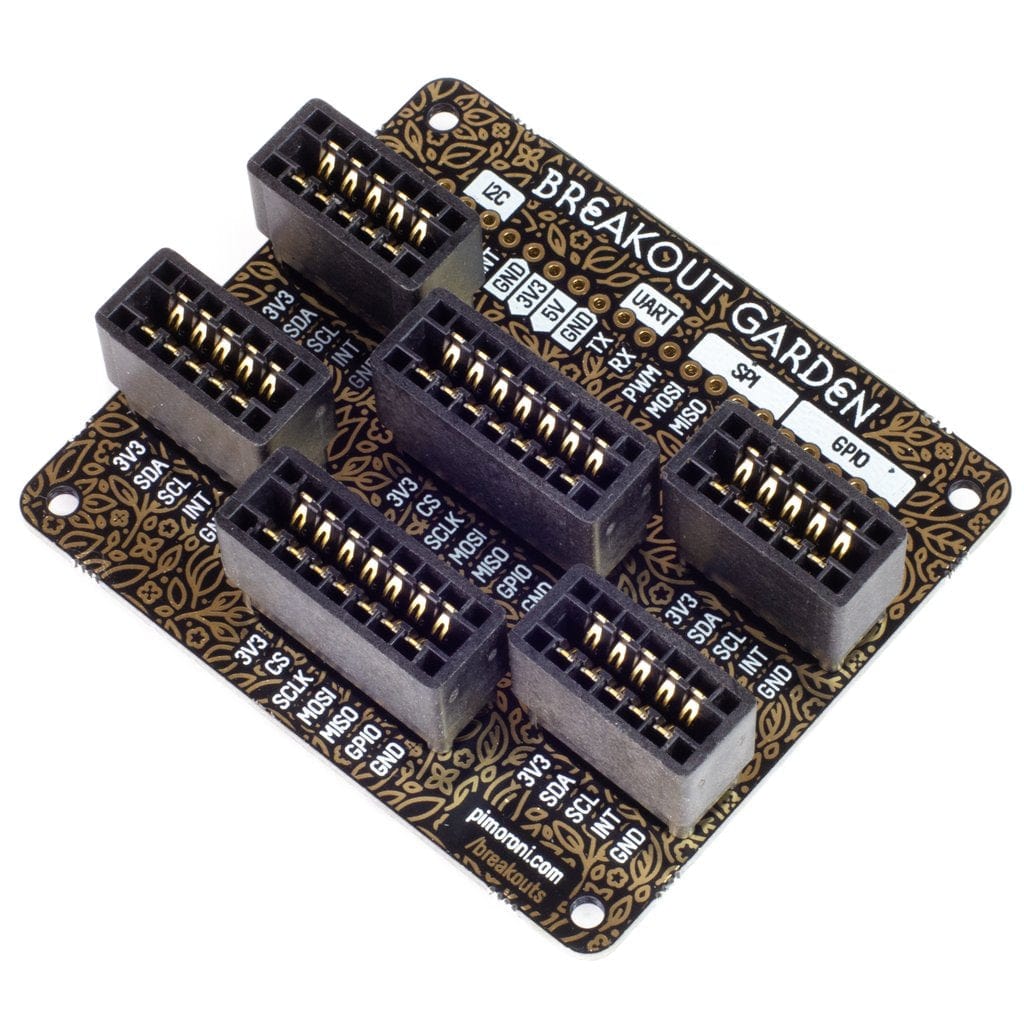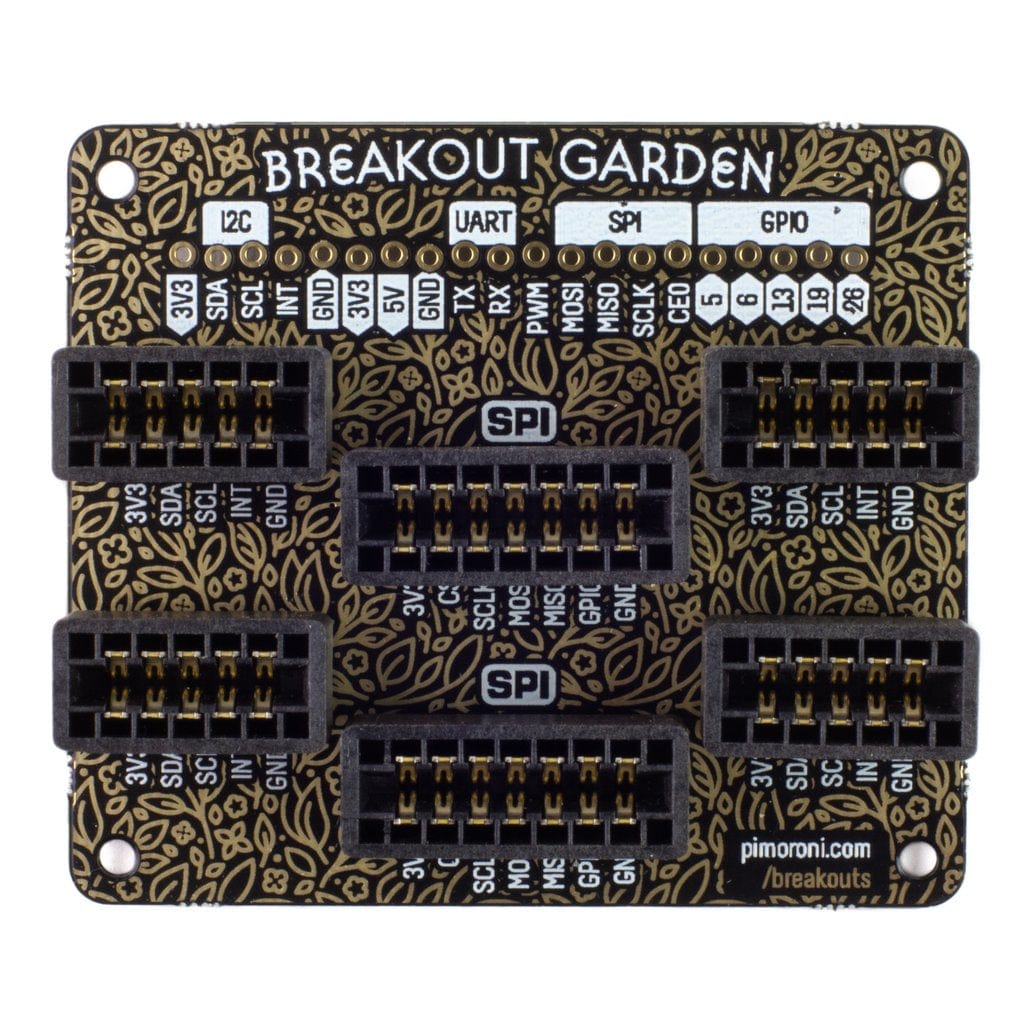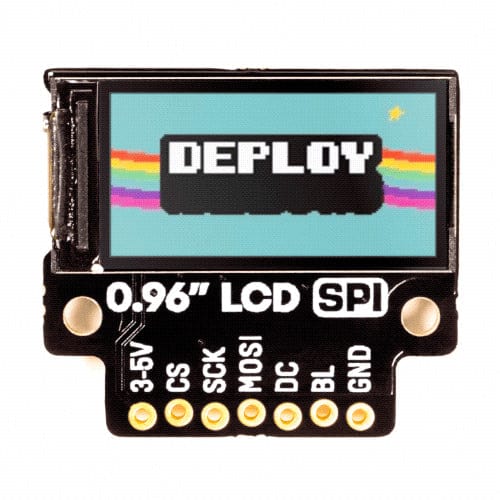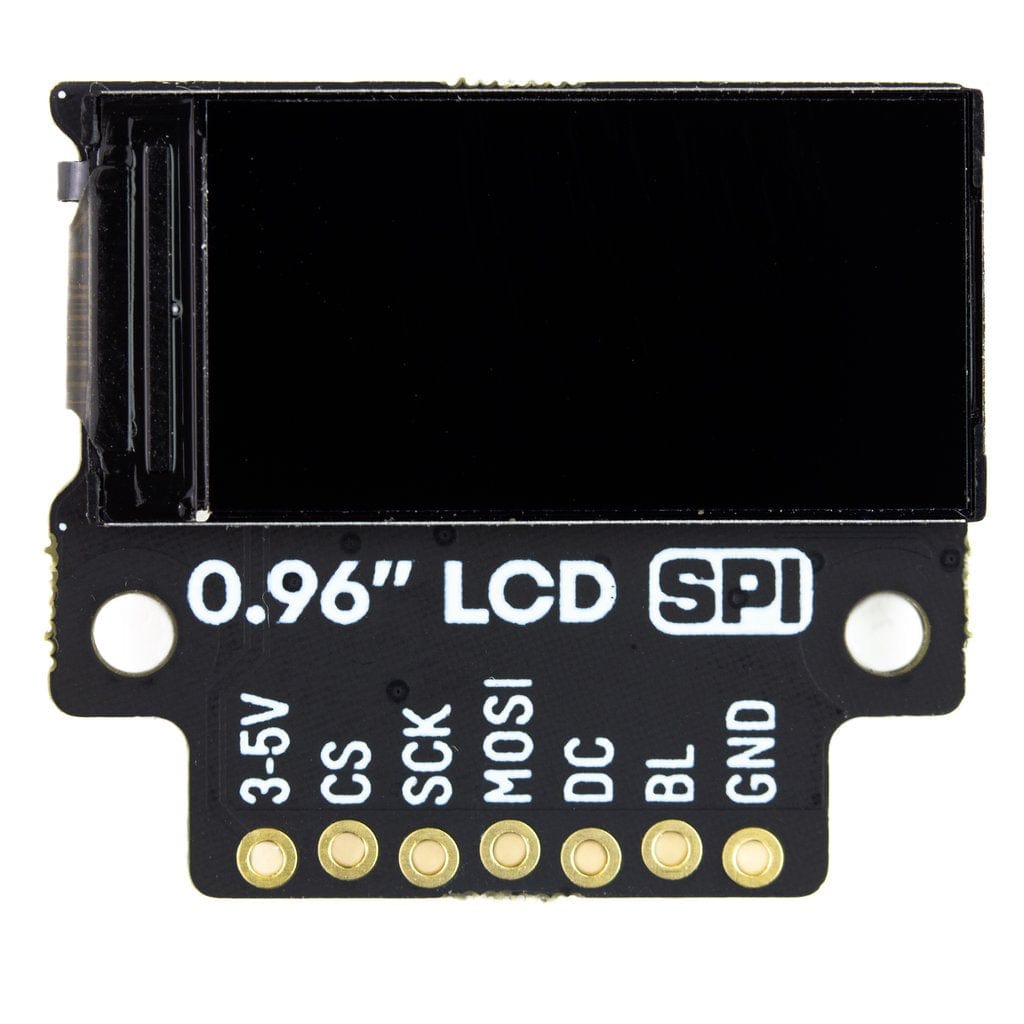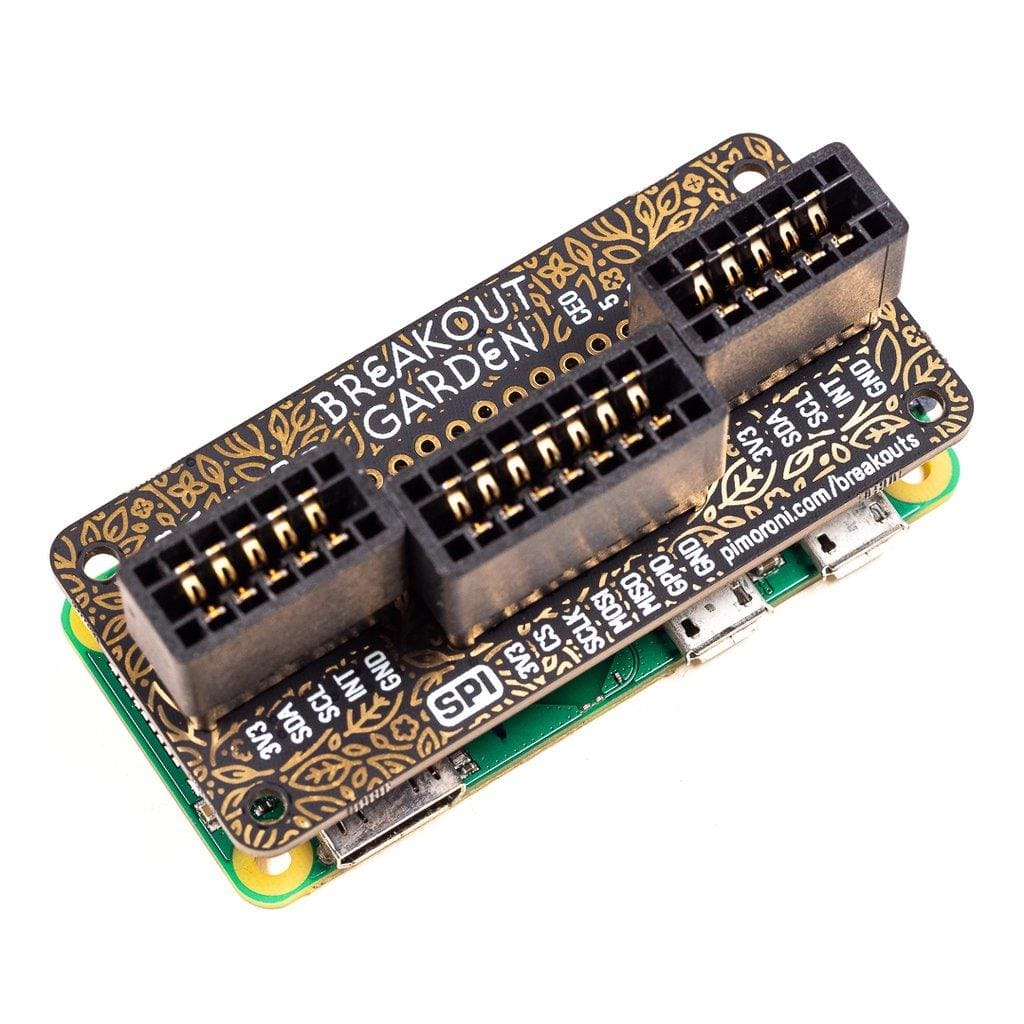
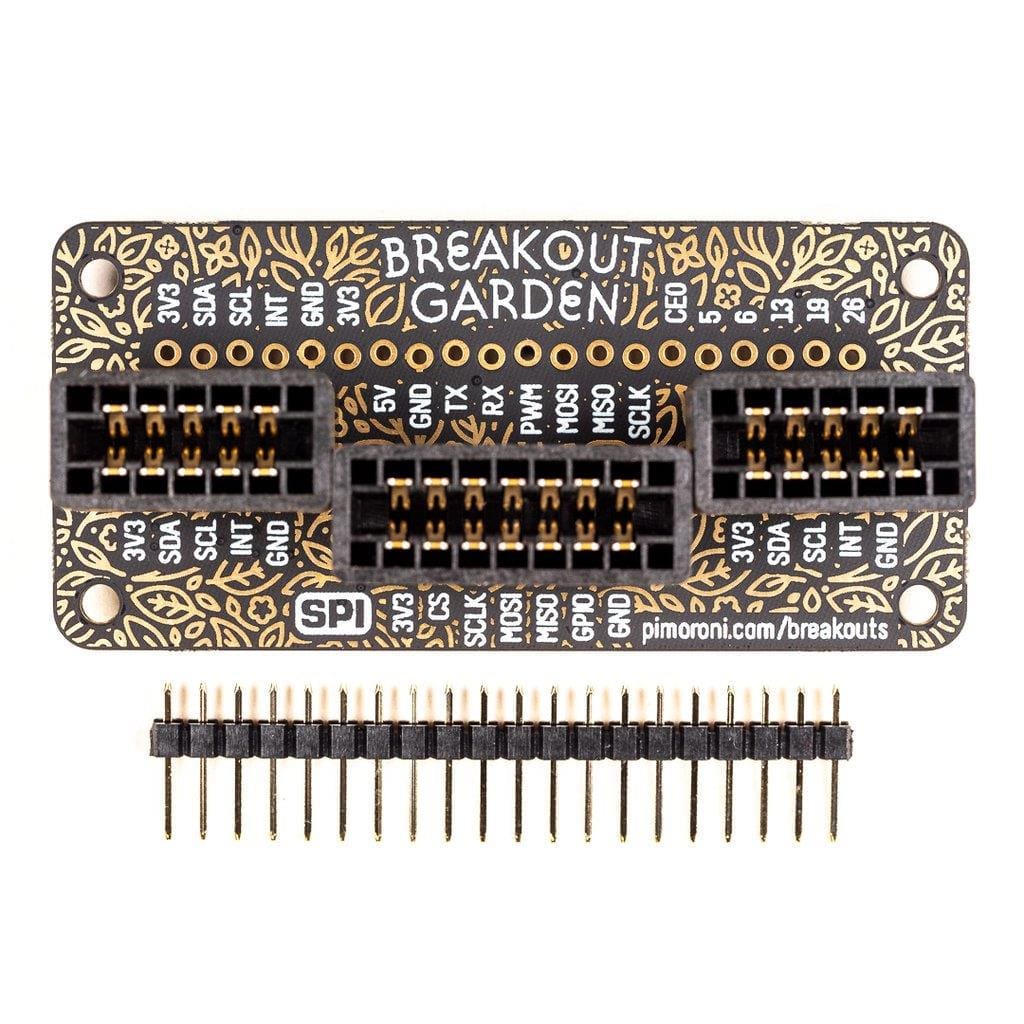
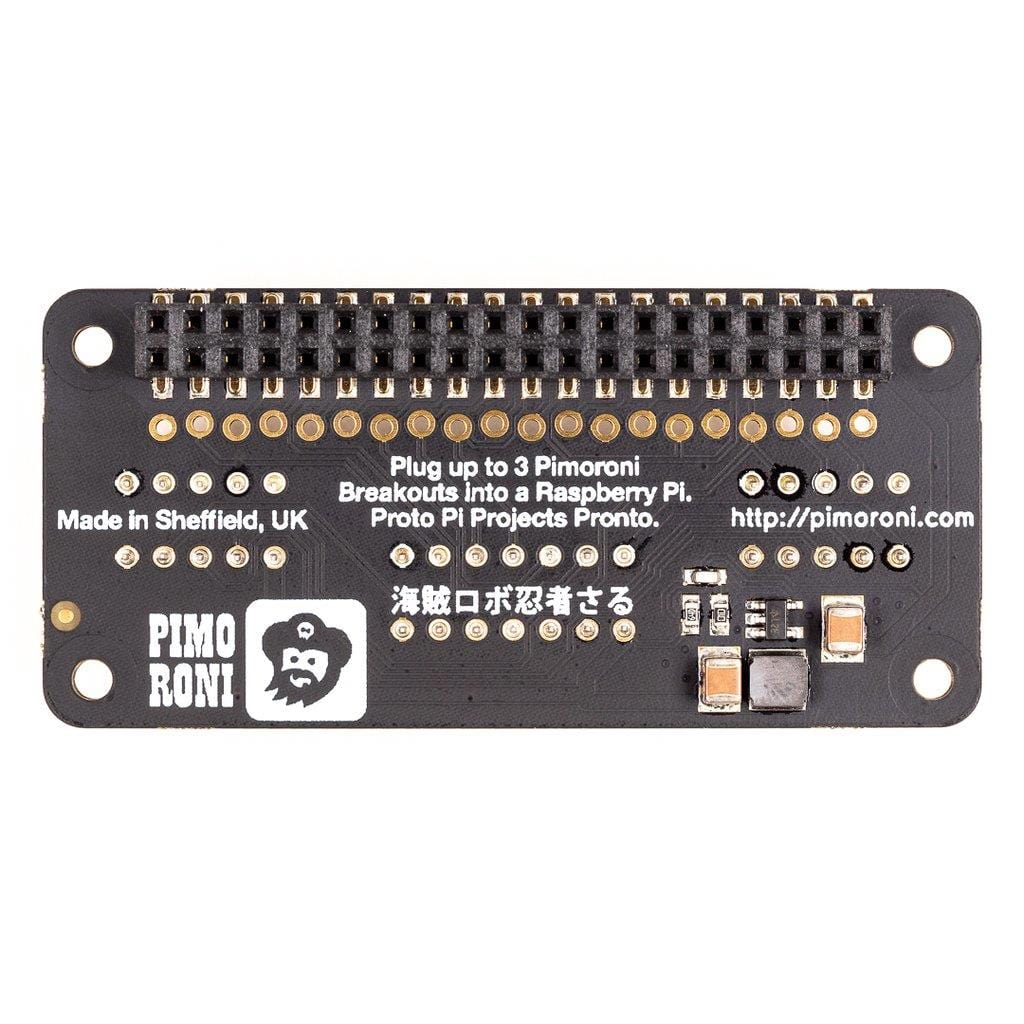
Login / Signup
Cart
Your cart is empty
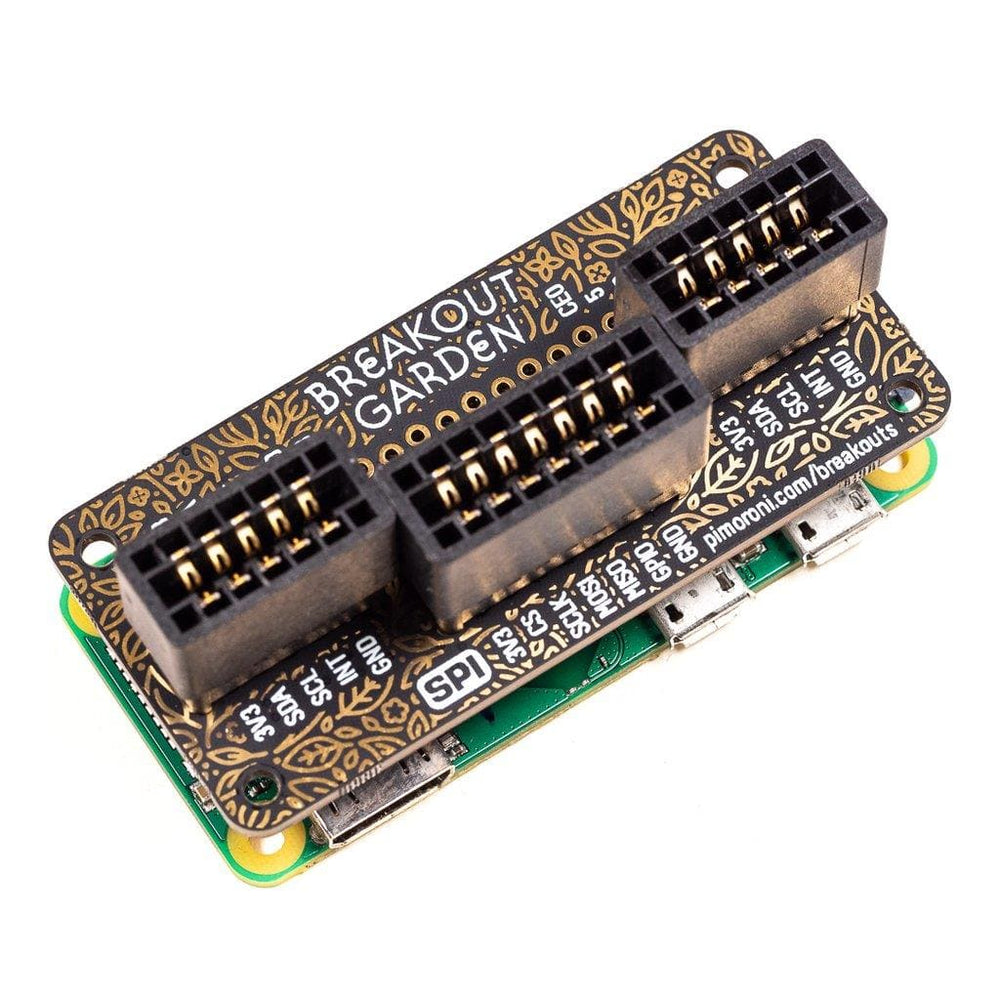
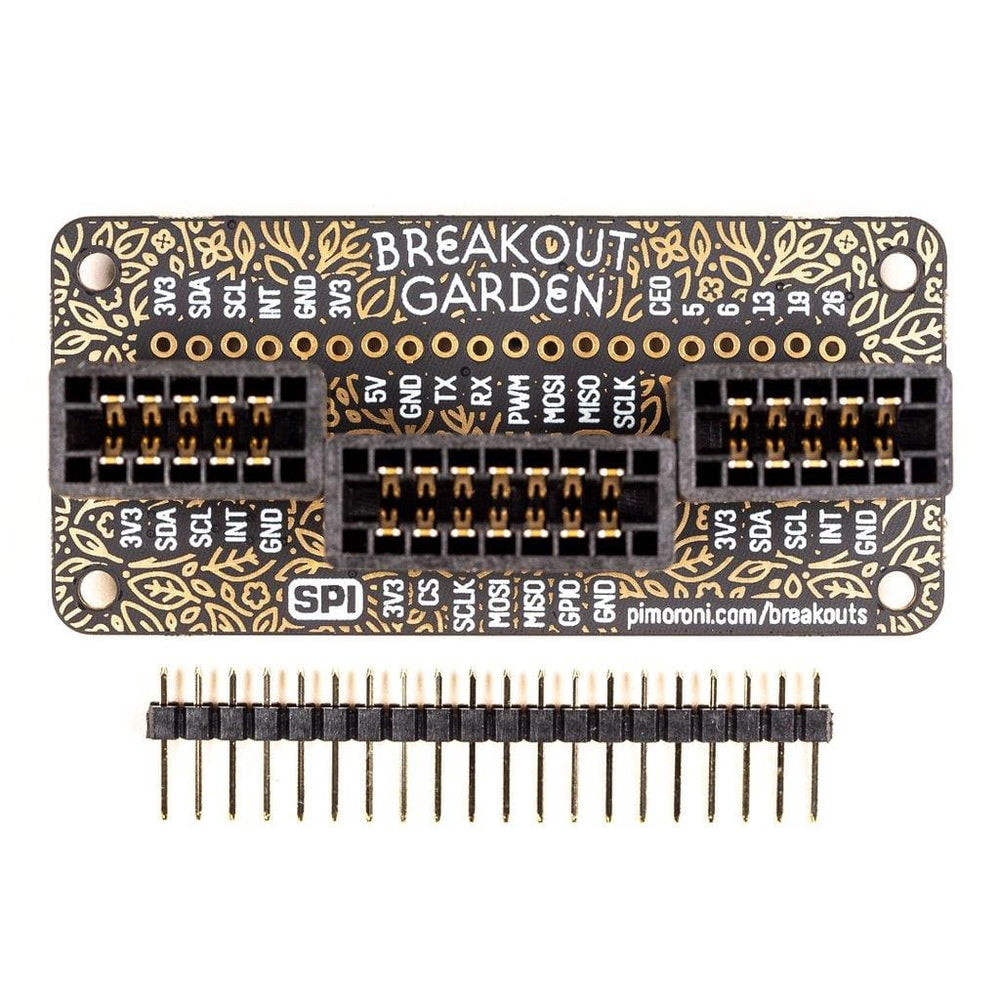
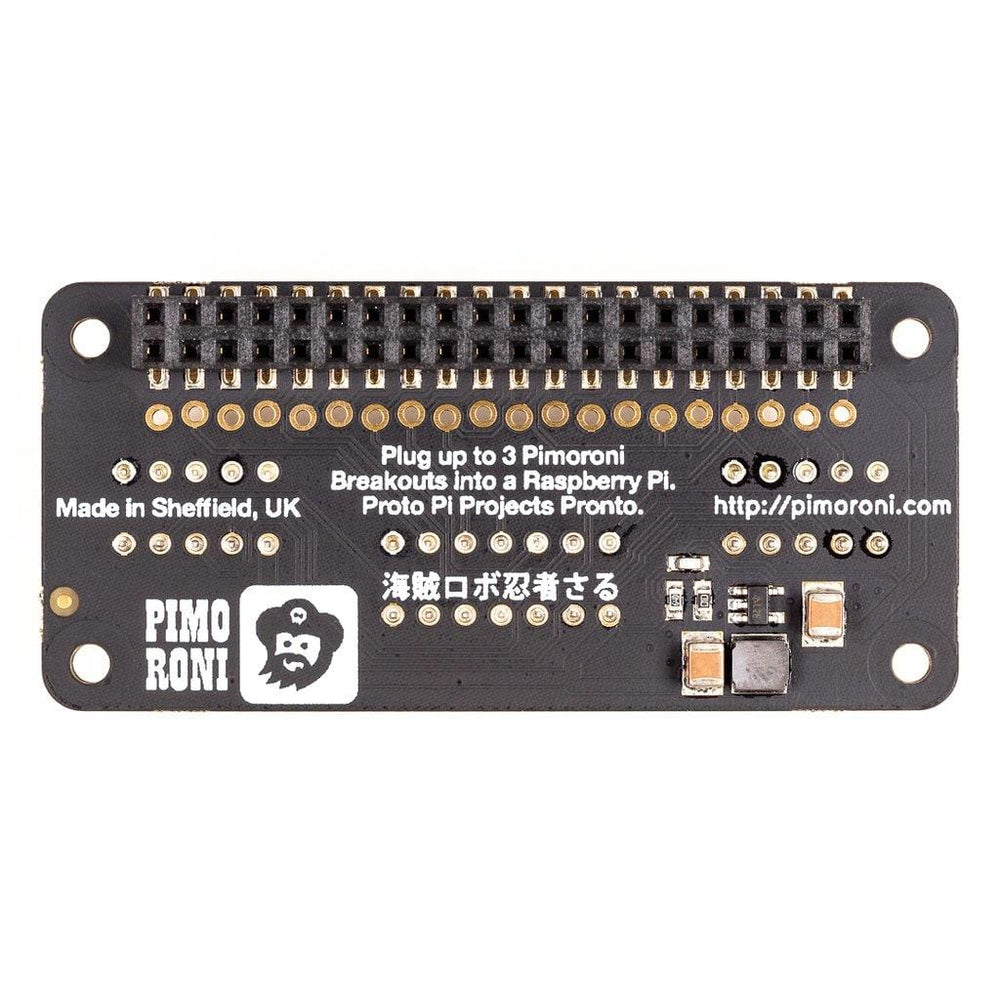
Now with SPI! The easiest way to use breakouts with your Raspberry Pi. There's no soldering required, just pop up to three Pimoroni breakouts (2xI2C, 1xSPI) into the slots on Breakout Garden Mini and get started coding and creating.
Grow your projects on Breakout Garden. It's ideal for prototyping projects without the need for complicated wiring, soldering, or breadboards, and you've always got the option of changing your setup thanks to the way that Breakout Garden works.
The three sturdy slots on Breakout Garden are edge connectors that connect Pimoroni breakouts to the pins on your Raspberry Pi. This new version of Breakout Garden has an SPI slot for Pimoroni SPI breakouts like the 0.96" LCD Breakout.
It's also got two I2C slots for Pimoroni I2C breakouts. Because I2C is a bus, you can use multiple I2C devices at the same time, providing they don't have the same address (we've made sure that all of our breakouts have different addresses).
Check out our full range of Breakout Garden's and Breakout's here
Features
Using Breakout Garden
Because of the way that I2C (the protocol that Breakout Garden uses) works, it doesn't matter which slot on Breakout Garden Mini you plug your Pimoroni breakout into. Each I2C device has an address (you'll see it on the back of each breakout) that it uses to identify itself to other I2C devices, so it's effectively saying to your Raspberry Pi, "Hey, it's me, Bob!"
SPI is a faster, higher-throughput protocol for talking to devices like displays. The SPI slot on Breakout Garden Mini uses chip select 1 (BCM 7) and BCM 19 for the GPIO pin (used for things like LCD backlights).
We've built reverse polarity protection into our Pimoroni breakouts, meaning that there's no magic blue smoke if you accidentally plug one in the wrong way round. However, the correct way to plug them in is to make sure that the labels on the pins on your breakout and the labels on each Breakout Garden Mini slot match up.
We've also broken out a load of useful pins along the top of Breakout Garden Mini, so you can connect other devices and integrate them into your Breakout Garden projects. If you have Pimoroni breakouts to which you've already soldered headers, then you can use this top row of pins to use them alongside other breakouts on Breakout Garden Mini.
Software
Head over to the Breakout Garden GitHub repo and give our automagic installer a go. Just pop a few breakouts into Breakout Garden Mini, run the installer, and SHAZAM!, the software for the appropriate breakouts will be installed. We've also got a few nice examples to show you what's possible.




